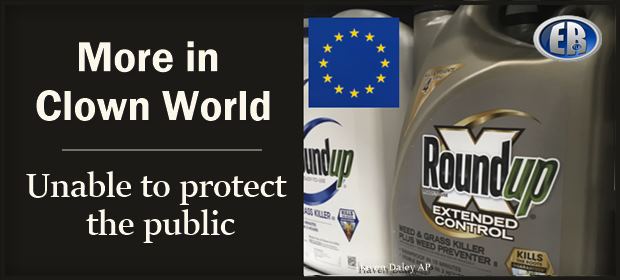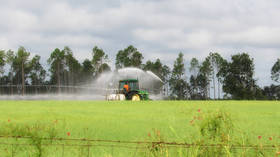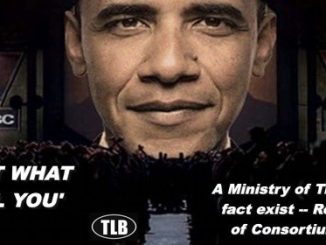
ER Editor: See also this report by AP from last month —
EU can’t reach decision on prolonging the use of chemical herbicide glyphosate
If they couldn’t get their act together on protecting the public from DNA-, SV40- and graphene/nano-loaded injections, why should we expect any different on the glyphosate issue?
Readers may be interested in this piece from Beyond Pesticides via Children’s Health Defense today —
Are Kids Most at Risk? Glyphosate Tied to Anxiety, Gut Bacteria Changes
********
EU to prolong authorization for controversial herbicide
Brussels will extend glyphosate approval for ten years despite member states failing to reach a qualified majority on the matter
RT
The controversial herbicide glyphosate, considered by some health watchdogs to pose cancer and other risks, will be approved for use in the EU for another ten years, the European Commission announced on Thursday.
The bloc’s member states have failed to reach a qualified majority on allowing or banning use of the herbicide, and now the decision lies solely at the hands of the bloc’s executive body.

.
“In line with EU legislation and in the absence of the required majority in either direction, the Commission is now obliged to adopt a decision before December 15, 2023, when the current approval period expires,” the Commission said in a statement.
The body has already opted to prolong the authorization of the herbicide, explaining that its decision was based on the “comprehensive safety assessments” provided by the European Food Safety Authority (EFSA) and the European Chemicals Agency (ECHA). The renewed glyphosate approval will come with a number of restrictions, namely “a prohibition of pre-harvest use as a desiccant,” as well as the implementation of unspecified “certain measures to protect non-target organisms,” the Commission explained.
France, one of the EU countries most opposed to glyphosate use, has abstained from the undecisive vote. Ending glyphosate use was among the top talking points for President Emmanuel Macron, who pledged in 2017 to weed it out within three years. His government later backtracked on the pledge, however, stating that it was necessary to first determine whether any alternatives to the herbicide actually existed. Still, French courts have repeatedly banned assorted glyphosate-based products, citing a lack of data on the chemical’s potential impact on the environment.
Glyphosate, a broad-spectrum systemic herbicide and crop desiccant, is the key ingredient of Roundup, the flagship product of the now-defunct American agrochemical company Monsanto, which was acquired by Germany-based multinational giant Bayer in 2018. The $63 billion acquisition has become the largest one by a German company to date.
The acquisition of Monsanto brought Bayer assorted legal troubles, stemming from Roundup controversies. Back in 2020, Bayer agreed to pay more than $10 billion to end tens of thousands of lawsuits filed over the weedkiller and its potentially harmful effects on human health and the environment.
The controversial herbicide kept its trademark name Roundup under the new owner, with Bayer already welcoming the EU’s decision to prolong the authorization.
“This reauthorization allows us to continue to provide important integrated weed management technology to farmers across the European Union,” Bayer said in a statement.
Roundup and other glyphosate-based weedkillers have been the subject of controversy for years, particularly after the chemical was labeled as “probably carcinogenic in humans” by the World Health Organization’s International Agency for Research on Cancer (IARC). Leading European health watchdogs, however, including the EFSA, suggested that was “unlikely,” while the ECHA said in 2017 that glyphosate was toxic enough to cause serious eye damage and harmful for aquatic life but did not find any links between it and cancer either.
************
Source

••••
The Liberty Beacon Project is now expanding at a near exponential rate, and for this we are grateful and excited! But we must also be practical. For 7 years we have not asked for any donations, and have built this project with our own funds as we grew. We are now experiencing ever increasing growing pains due to the large number of websites and projects we represent. So we have just installed donation buttons on our websites and ask that you consider this when you visit them. Nothing is too small. We thank you for all your support and your considerations … (TLB)
••••
Comment Policy: As a privately owned web site, we reserve the right to remove comments that contain spam, advertising, vulgarity, threats of violence, racism, or personal/abusive attacks on other users. This also applies to trolling, the use of more than one alias, or just intentional mischief. Enforcement of this policy is at the discretion of this websites administrators. Repeat offenders may be blocked or permanently banned without prior warning.
••••
Disclaimer: TLB websites contain copyrighted material the use of which has not always been specifically authorized by the copyright owner. We are making such material available to our readers under the provisions of “fair use” in an effort to advance a better understanding of political, health, economic and social issues. The material on this site is distributed without profit to those who have expressed a prior interest in receiving it for research and educational purposes. If you wish to use copyrighted material for purposes other than “fair use” you must request permission from the copyright owner.
••••
Disclaimer: The information and opinions shared are for informational purposes only including, but not limited to, text, graphics, images and other material are not intended as medical advice or instruction. Nothing mentioned is intended to be a substitute for professional medical advice, diagnosis or treatment.





Leave a Reply